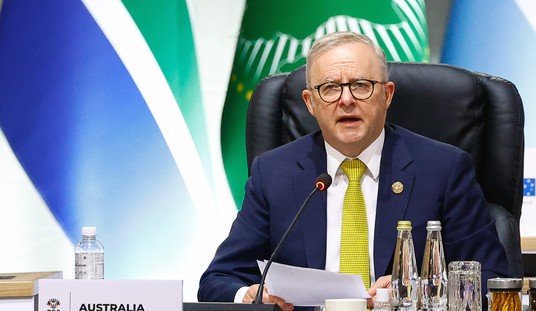Have House Republicans decided to act on the overwhelmingly bipartisan Senate bill — or are they just getting pushed into it by House Democrats at a very tricky political moment? Reuters reports that Paul Ryan plans to move a “strong bill” as soon as possible, but that procedural issues are holding it up:
Republican House Speaker Paul Ryan on Wednesday said he wants to move a strong bill regarding sanctions on Russia as quickly as possible but that the legislation still faced procedural and policy hurdles.
“Right now, we have a procedural issue,” and Republicans are working with Democrats regarding sending the bill back to the Senate, Ryan told reporters at a news conference. “There are some policy issues with respect to making sure that we don’t actually inadvertently help Russian oligarchs and oil firms.”
House Democrats want to leverage the suspicion over Russian interference to move the Senate bill — and to dare Republicans to block it. Steny Hoyer plans to use a procedural move to force the Senate bill to the floor if Ryan doesn’t act soon to do it himself:
In an attempt to call out what Democrats believe are GOP stalling tactics, House Minority Whip Steny Hoyer said his party would introduce the original Senate-passed Russia sanctions legislation later Wednesday, essentially daring the majority to act.
“There has been some assertion that we are holding up the bill,” the Maryland Democrat told reporters. “The majority leader can put the bill on the floor as early as 12:01 p.m. today. He has that authority. I would urge him to do so. And if he puts the Senate bill on the floor, we will support it.”
The bill passed 98-2 in the Senate, and will likely have overwhelming bipartisan support in the House as well. Trump could veto the bill, but coming on the heels of the revelation about the meeting between a Kremlin-linked attorney and two of Trump’s family members during the campaign, a veto would be controversial, to say the least. On top of that, both chambers would be likely to override a veto, which would add some humiliation to the controversy.
With that context, Paul Ryan’s reluctance to bring the bill to the floor has been seen as an attempt to put off the conflict for as long as possible. It also rests on a dispute over just how the act would get triggered to block Donald Trump from easing sanctions through his executive authority. According to Politico, an amendment to the bill in the Senate leaves that authority with the majority, a change that was passed by unanimous consent despite a last-minute warning from Hoyer to Benjamin Cardin. Hoyer wants to present the original bill to the House without the limitation, and force a revote in the Senate. Ryan wants to keep that authority with the majority, for obvious reasons.
The White House has already publicly opposed the bill, but ABC News says it’s too little and too late to change Congress’ mind:
Either way, White House objections over the bill come too late to matter. The section of the bill the administration dislikes has strong bipartisan backing.
The provisions would require a congressional review if Trump seeks to ease or end the sanctions against Moscow. The provisions are styled after 2015 legislation pushed by Republicans and approved in the Senate that gave Congress a vote on whether then-President Barack Obama could lift sanctions against Iran.
Marc Short, the White House legislative director, said Monday that the sanctions review section “sets an unusual precedent of delegating foreign policy to 535 members of Congress.”
Officials from the Treasury and State departments met last week with House congressional staff in a belated attempt to voice their concerns over the congressional review. They said the section would infringe on the president’s executive authority.
At this point, the White House — and the GOP — might be better off letting this fight go. If it infringes on executive authority, the Trump administration could take the case to the Supreme Court for relief if and when the time comes. Given the political baggage around Russia policy, it seems very unlikely that Trump could ease sanctions anyway without doing even more damage to his credibility and that of the GOP. Trump could avoid signing it by defaulting on the bill as per Article I, Section 7, as long as Congress remains in session long enough to avoid it becoming a pocket veto. Better to take a tough stand now on Russia sanctions that aren’t going to get eased or ended soon anyway than to fight over the policy in the midst of a probe that’s looking for some quid pro quo.








Join the conversation as a VIP Member